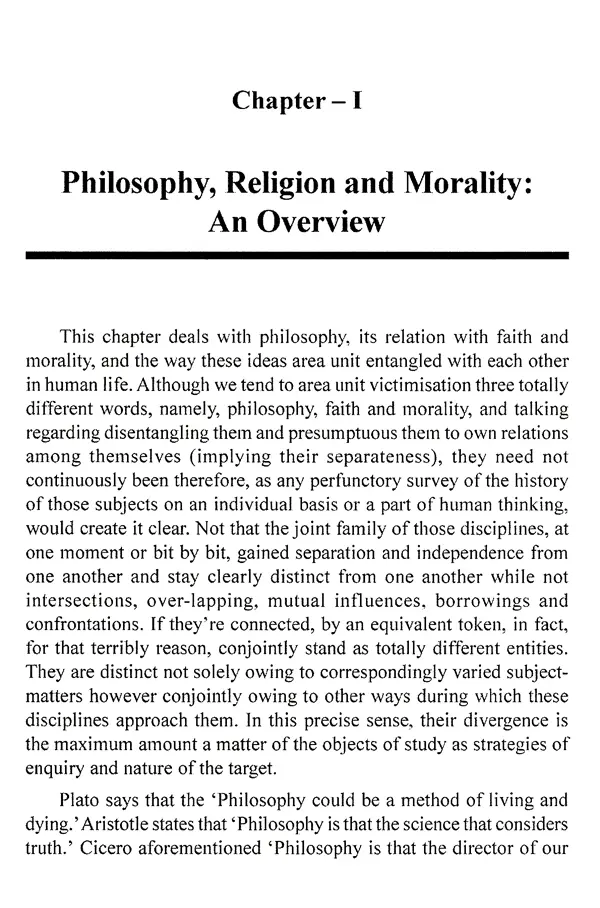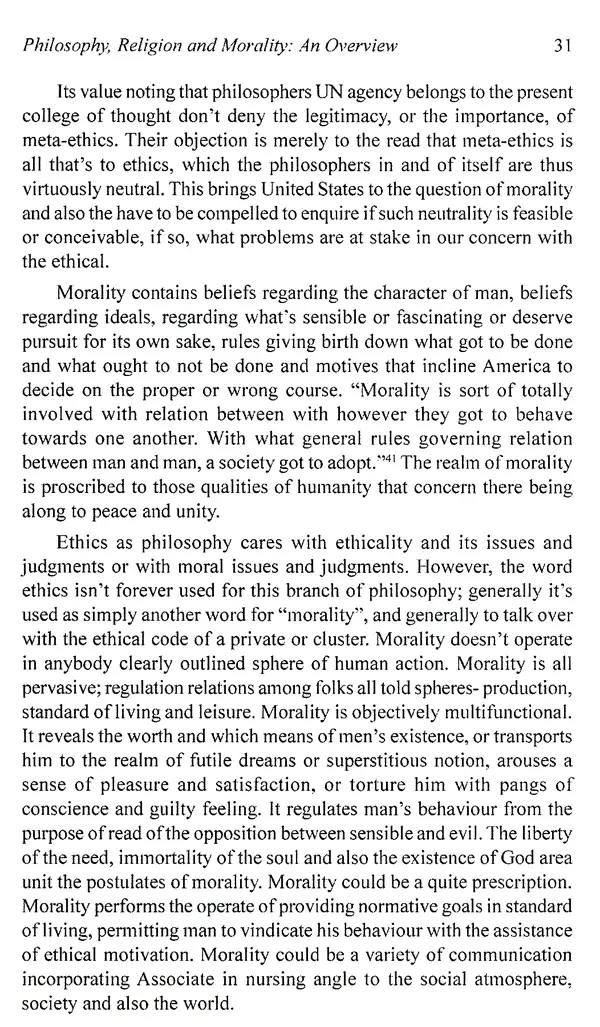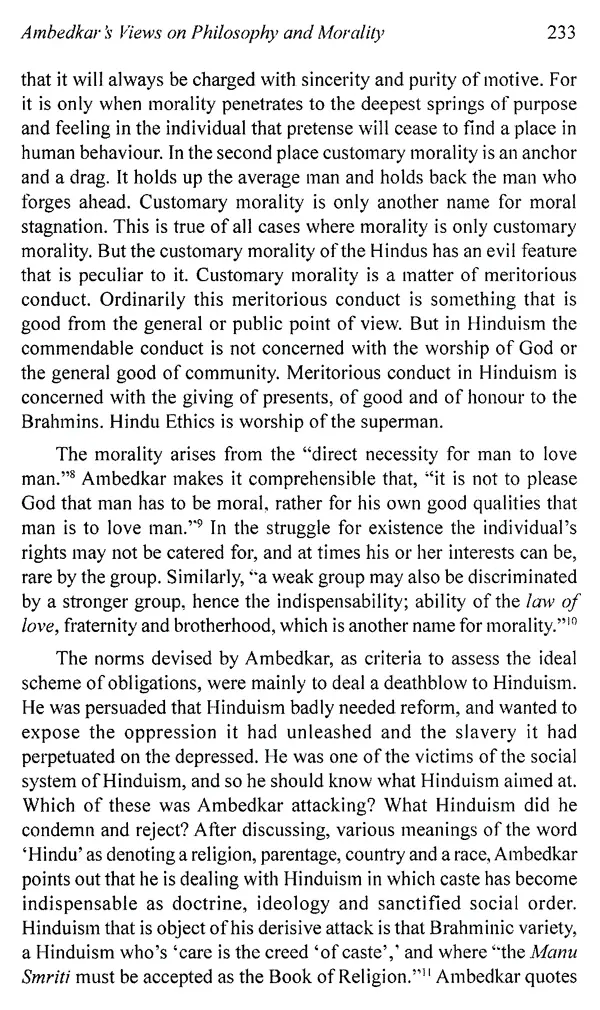
Ambedkar's Philosophy on Religion and Morality
Book Specification
| Item Code: | UAM695 |
| Author: | Seshagiri Rao |
| Publisher: | Kalpaz Publications |
| Language: | English |
| Edition: | 2016 |
| ISBN: | 9789351281870 |
| Pages: | 292 |
| Cover: | HARDCOVER |
| Other Details | 8.90 X 5.90 inch |
| Weight | 470 gm |
Book Description
Systems of Morality and Religion precisely are attempts to describe the acts or craving of humans which clearly includes the normative claims, Religion can be visualised as normative claim in the sense it is an attempt to visualise the ideal concepts. And morality mainly discusses the ideal values. Altogether philosophy is an attempt to sketch the normative ideas in the realm of knowledge, reality, ethics, aesthetics, religion etc, in a justified manner. And philosophical analysis of religion and morality tell us how justifiably we can talk about the ideal values and concepts. In the realm of religion and morality normative idea is almost identified with ideal nature. But what is the problem with the ideal nature is ideality that often loses its relevance because it is always considered as a kind of leap from the empirical realm. And only a philosophical analysis can reveal how much the so called ideal systems are necessary for the life or how much problematic the duality of empirical and ideal or how much each does contribute one another, .
Moreover, philosophical analysis provides adequate justification for ideas in the systems of religion and morality. Analysis of Wester religion and morality reveals that it is mainly anthropocentric; it mainly revolves around the human relations. God is constituted in the position of father and humans are considered as sons or daughters of the father. And all other specification is worked out by developing this model. Morality is worked by looking on the idea of how children should behave with parents. It mainly emphasises that humans, all other creatures are the creations of God, and the supremacy of one absolute God over the all creations is emphasised in the Semitic religions.
Contrary to the Semitic tradition, the Indian tradition is the Vedic Hindu tradition mainly revolves around the ideas of Vedas and Upanishads. Thus, the pronouncements of those texts are considered. as sacred and ideal and, the only remaining task to provide arguments in favour of it. Here argument does not cross the limits, which Vedas drew, However, in heterodox tradition, inquiry is without any presuppositions. That result in the amazing arguments regarding religion and morality. Especially Buddhism is a system, which is predominantly ethical but excludes the concept of God and Jainism does not provide any categorical difference between God and Human.
**Contents and Sample Pages**













